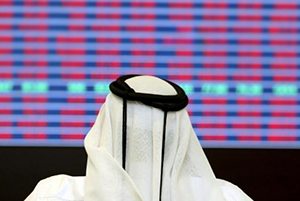The world has split into two camps over the plunge in oil prices in recent months.
On one side the oil producers are wringing their hands in despair counting the cost of every barrel to their plans for economic growth.
On the other, oil consumers have jumped up and down in glee as prices have made energy and goods cheaper.
Now, the real problems of collapsing oil prices are coming home to roost for the big oil producers in the Middle East.
The International Monetary Fund (IMF) and World Bank are ganging up on the six states – Saudi Arabia, United Arab Emirates, Kuwait, Qatar, Oman and Bahrain – to swing the axe on overinflated public spending.
Economic problems
The business model in the Gulf has been to pump out oil, count the profits and then distribute the cash as salaries for private sector jobs and subsidies for taxpayers.
That was OK when oil was priced around $115 a barrel a year or so ago. The price fell to less than $50 dollars but has slowly clawed back value to around $60 a barrel now.
The World Bank has put a cost on this plummeting price to the Gulf States – $215 billion. This is a sum of money equivalent to 14% of their combined GDP.
These governments really have to act fast to counter their economic problems,” said the World Bank’s Middle East chief economist Shanta Devarajan.
“They may record a fiscal deficit for the first time since 2011 and they are all working to sort out their subsidies.
Cut subsidies
“They should take the subsidy away from making fuel cheaper and give the cash direct to consumers instead. This will cut traffic and pollution and give people more to spend on other goods and services.”
Devarajan explained that similar schemes already work well in the US state of Alaska and the Canadian province of Alberta.
He also argues too many people work in the public sector – with up to 90% of men employed in some way by the state in some places.
“The private sector cannot compete for workers on good salaries and low stress jobs in the public sector and this stops business growth and reduces opportunities for young workers,” he said.
According to the World Bank, 29% of 15-24 year olds in Saudi Arabia and 20% in Kuwait are unemployed.
